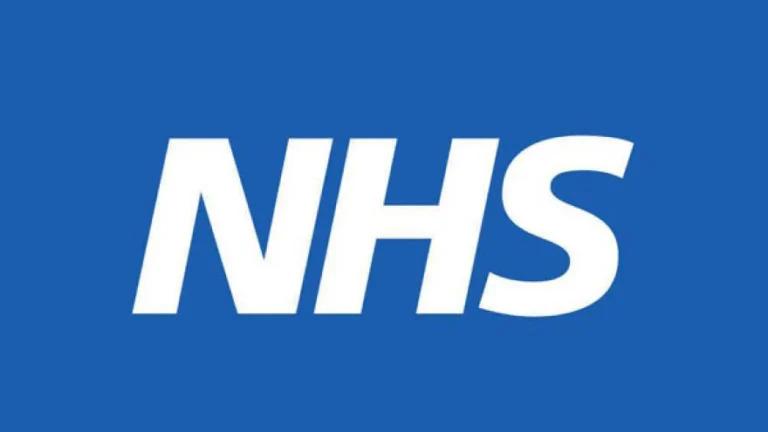The softest mineral in the world, talc (i.e. cosmetic talc) has been a popular ingredient in the skincare, beauty, personal care products and makeup industry because it absorbs moisture quickly. Used for various purposes, from personal hygiene to baby care, it has long been considered a safe and essential product. However, recent concerns have emerged regarding the potential health risks associated with talcum powder use. In this article, we will delve into the controversy surrounding talcum powder and examine the scientific evidence to determine its safety.
Understanding Talcum powder
Talcum powder is a mineral-based product primarily composed of talc, a hydrated magnesium silicate. It is widely used in cosmetic products such as baby powder, body powders, and feminine hygiene products. Talc’s ability to absorb moisture and reduce friction makes it a popular ingredient in these products. However, the safety of talcum powder has come under scrutiny due to its potential link to various health issues.
The alleged link to Cancer
One of the main concerns surrounding talcum powder is its cancer-causing association. particularly ovarian cancer. Some studies have suggested an increased risk of ovarian cancer among women who regularly use talcum powder in the genital area. However, it is essential to analyze the available evidence to ascertain the validity of these claims.
A systematic review and meta-analysis conducted by Ross Penninkilampi et al. analyzed numerous observational studies to evaluate the association between perineal talc use and ovarian cancer risk. The analysis included case-control and cohort studies, encompassing a significant number of cases. The findings indicated that any perineal talc use was indeed associated with an increased risk of ovarian cancer (OR = 1.31; 95% CI = 1.24, 1.39). Furthermore, the analysis revealed a slightly higher risk with more than 3600-lifetime applications (OR = 1.42; 95% CI = 1.25, 1.61). However, it is crucial to note that the association varied depending on the study design and ovarian cancer subtype.
The role of asbestos
One of the key factors in the talcum powder controversy is the presence of asbestos. Asbestos is a known carcinogen and has been linked to various types of cancer, including lung cancer and mesothelioma. Before 1976, talcum powder was occasionally contaminated with varying amounts of asbestos due to the proximity of talc and asbestos deposits in nature. However, regulations were implemented to ensure that talc used in cosmetic products is asbestos-free.
The controversy surrounding Talc-based baby powder
Johnson & Johnson, the renowned multinational company, has announced its decision to discontinue the global sales of its baby powder containing talc by 2023. This move comes amidst over 40,000 lawsuits in the US alleging that Johnson’s baby powder is contaminated with asbestos, which has been linked to ovarian cancer and mesothelioma.
Asbestos is a natural by-product of talc mines, leading to concerns about its potential health effects. In 2018, internal company documents submitted to the courts revealed that Johnson & Johnson executives had known about asbestos contamination since 1957 but failed to disclose this information to regulators and the public. In response to the allegations and mounting legal battles, Johnson & Johnson switched to a cornstarch-based baby powder formulation in the US and Canada in 2020. The company states that the switch to a cornstarch-based formulation is a “commercial decision” aimed at simplifying its product offerings and meeting evolving global trends,
The NHS perspective: Is Talcum powder safe?
The NHS provides valuable insights into the safety of talcum powder. According to their analysis, there is no good evidence to suggest that talcum powder causes cancer. While some studies have indicated a potential increase in the risk of ovarian cancer among women who use talcum powder on their genitals, the evidence is not sufficient to establish a definitive link. More research, specifically larger and higher-quality studies, is needed to confirm this association conclusively.
Furthermore, the NHS emphasizes that the use of talcum powder is generally safe for personal hygiene purposes. However, it is crucial to use talcum powder responsibly and follow the manufacturer’s instructions. Additionally, it is recommended to avoid inhaling talcum powder to prevent potential respiratory issues.
The UK and EU regulations
To ensure the safety of cosmetic products in the UK and EU, strict regulations control the ingredients used. This includes the formulation and usage of talcum powder. These regulations prohibit certain substances in cosmetics and restrict the use of others. For instance, some ingredients can only be used in small amounts or specific types of products. Therefore, when purchasing cosmetics, including talcum powder, it is essential to buy from reputable retailers to ensure compliance with these regulations.
However, it is worth noting that cosmetics purchased from outside the UK and EU may not adhere to the same strict regulations. Therefore, exercising caution when buying products online or from international sources is recommended to avoid potential harm from products that may contain unsafe ingredients.
Deodorants, hair dyes, and other concerns
Apart from the alleged link to ovarian cancer, concerns have also been raised regarding other cosmetic products. Let’s examine some of these concerns and the available evidence.
Deodorants and Cancer risk
There has been speculation about a potential association between deodorants, particularly those containing aluminium, and an increased risk of cancer. However, the evidence does not support this claim. The NHS clarifies that using deodorants, antiperspirants, or body sprays does not cause cancer. The recommendation to avoid using spray deodorants before a breast screening is solely due to their potential impact on the screening results, not their harmfulness.
Hair dyes and Cancer risk
The personal use of hair dye, including regular root coverings and colour changes, does not appear to pose a significant risk of cancer. However, studies have suggested a potential increase in the risk of bladder cancer among hairdressers and barbers who have daily contact with hair dye. Further research is required to establish a solid link between hair dye use and bladder cancer.
Talcum powder and Cancer risk
Regarding talcum powder, the NHS confirms that there is no good evidence to suggest that it causes cancer. While some studies have indicated a possible increase in the risk of ovarian cancer among women who use talcum powder on their genitals, the evidence is not conclusive. More extensive and higher-quality studies are needed to definitively establish a link.
Parabens and Cancer risk
Parabens, commonly used as preservatives in cosmetic products, have also raised concerns regarding their potential association with cancer. Some studies in rats have suggested that parabens might mimic the hormone estrogen, which has been linked to breast cancer. However, there is no solid evidence linking parabens to breast cancer in humans. Regulatory bodies, such as the UK and EU, closely monitor the usage of parabens to ensure their safety in cosmetics.
Conclusion
The safety of talcum powder has been the subject of intense debate. While some studies have suggested a potential link between talcum powder use and ovarian cancer, the evidence is not yet conclusive. The NHS maintains that there is no good evidence to suggest that talcum powder causes cancer. However, it is crucial to use talcum powder responsibly and follow the manufacturer’s instructions.
Cosmetics in the UK and EU are subject to strict regulations, ensuring the safety of the ingredients used. It is advisable to purchase cosmetics, including talcum powder, from reputable retailers to ensure compliance with these regulations. Additionally, exercising caution when buying products from outside the UK and EU is recommended, as they may not adhere to the same safety standards.
Ultimately, more extensive research is needed by medical experts to definitively establish the safety of talcum powder. Until then, it is essential to stay informed, use cosmetic products responsibly, and consult healthcare professionals for any concerns regarding their usage.
Sources
- Can cosmetics cause cancer? – Cancer Research UK
- Johnson and Johnson will discontinue talc based baby powder worldwide – The BMJ
- Perineal use of talcum powder and endometrial cancer risk – PMC
- Perineal Talc Use and Ovarian Cancer: A Systematic Review and Meta-Analysis – PubMed
Medical Disclaimer
NowPatient has taken all reasonable steps to ensure that all material is factually accurate, complete, and current. However, the knowledge and experience of a qualified healthcare professional should always be sought after instead of using the information on this page. Before taking any drug, you should always speak to your doctor or another qualified healthcare provider.
The information provided here about medications is subject to change and is not meant to include all uses, precautions, warnings, directions, drug interactions, allergic reactions, or negative effects. The absence of warnings or other information for a particular medication does not imply that the medication or medication combination is appropriate for all patients or for all possible purposes.







